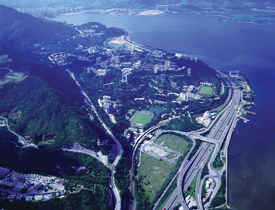
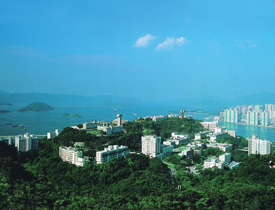
1993 - 2002
The decade from 1993 to 2002 was a watershed in Hong Kong history. After about 150 years as a British colony, Hong Kong saw off the last years of its colonial era and reverted to Chinese sovereignty on 1 July 1997. During this period, CUHK also underwent leadership changes and governance reforms. After being at the helm of the University for almost nine years, Professor Charles K. Kao retired in 1996. Professor Arthur K.C. Li was appointed Vice- Chancellor of CUHK, succeeding Professor Kao. In 2002, Professor Li resigned from the Vice- Chancellorship as he assumed his new position of Secretary for Education and Manpower of the Hong Kong SAR Government. He was succeeded by Professor Ambrose King.
With the expansion of tertiary education in Hong Kong, CUHK had grown in size and its services and functions had become increasingly diversified. The University began to decentralize certain administrative functions to the Faculties, departments and administrative units to ensure efficiency and flexibility. In 1995–96, it implemented a performance-based funding methodology. New internal audit mechanisms were also introduced to ensure adequate internal control and quality service-delivery.
New schools which either consolidated existing academic programmes or offered new ones mushroomed throughout the 1990s. The School of Accountancy was established in 1993; the School of Hotel Management (renamed School of Hotel and Tourism Management in 2002) and the School of Chinese Medicine in 1998; the School of Public Health (renamed School of Public Health and Primary Care in 2009) and the School of Journalism and Communication in 1999. During this decade, the population of undergraduate students plateaued at some 9,000. But that of the postgraduate students more than doubled, increasing from 2,137 in 1993–94 to 5,641 in 2001–2002. The earmarked grants for research received by CUHK from the Research Grants Council rose from some HK$29 million in 1993–94 to more than 110 million in 2001–02. These figures were testimony to the fact that CUHK had already evolved into a research university with substantial research capacity.
New technologies, ideas, and processes resulting from research had led to much increased technology transfer activities. To the University, technology transfer is a form of service to the community and a way to contribute to high-tech and high value added industries in Hong Kong. Through licensing, spin-off companies, and other channels, many inventions with commercial value had been successfully transferred to local and international businesses and industries. These successes had also brought recognition to the University's outstanding researchers.
After Hong Kong had returned to Chinese rule under 'One Country, Two Systems' in 1997, the relationship between the city and mainland China became closer than ever. As economic and other ties grew stronger, talent who were conversant in the cultures of the two places were in increasingly high demand. In 1998, CUHK recruited 28 undergraduate students from some Chinese provinces and municipalities, making it the first local university to tap into the talent pool on the mainland. Their quality, diligence and determination to succeed have brought about a mutually enhancing effect on local students and enriched the campus experience for all. By 2013, some 2,300 mainland students have finished their undergraduate studies at CUHK before returning home, pursuing further studies here or overseas or embarking on a variety of career paths.
The Chinese University played a crucial role in the early inception and growth of the Internet in Hong Kong. In 1991, the University took the lead in establishing a satellite link with NASA (National Aeronautics and Space Administration) in the US under the leadership of Professor Charles K. Kao. In 1995, the Information Technology Services Centre of the University set up the Hong Kong Internet Exchange (HKIX) to provide an interconnection point for local internet service providers (ISP). Since then inter-ISP traffic no longer needs to be routed outside Hong Kong, saving a lot of money and reducing the volume of traffic to another country, thereby speeding up data delivery between Hong Kong and the rest of the world. To this day the HKIX remains an Internet hub of the Asia-Pacific region.
With increased academic and research activities on campus, the University embarked on a number of construction projects, including the Shanghai Fraternity Association Research Services Centre, the Mong Man Wai Building, the new Chung Chi College Administration Building and the Esther Lee Building, and the School of Public Health Building located at the Prince of Wales Hospital. On the other hand, the University set great store by greenery on its campus. In 2000, it completed a comprehensive environmental audit, the first of its kind ever conducted by a local educational institution. The audit confirmed that the air on our campus was fresh, the waters clean, the landscape green, and the operations of the University well planned and managed so that ecologically unsound elements were kept to a minimum. To continue keeping the campus green and to heighten environmental consciousness among the campus community, a university-wide action plan was adopted in May 2000.
Since its inception, CUHK has received much help and support from its alumni, friends and benefactors. To strengthen and promote the relationship between the University and its alumni as well as the general public, the CUHK Convocation was established. Its first meeting was held on 9 September 1993, paving the way for alumni participation in University affairs and policy making. Further, to recognize the significant contribution and support given by members of the community to the University over the years, the University established an honorary fellowship award scheme, and the first honorary fellowship conferment ceremony took place in May 2002.








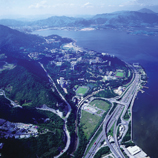
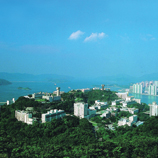
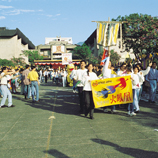
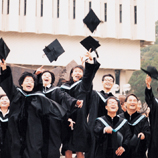
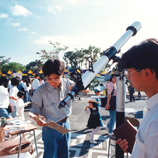
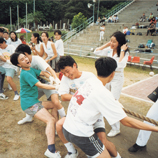
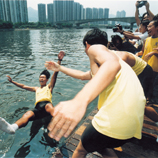
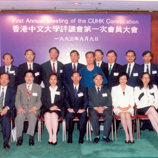
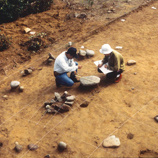
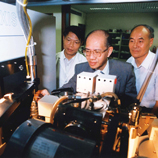
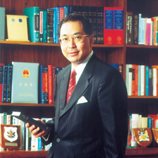
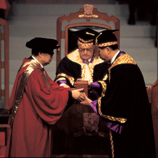
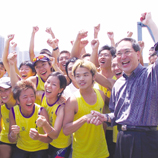
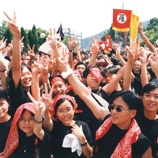
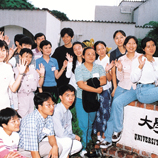
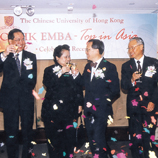
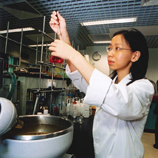
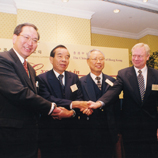
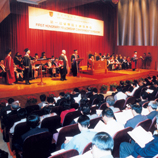
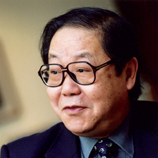
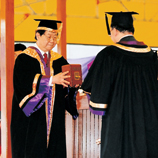
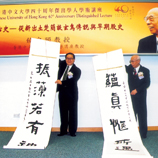
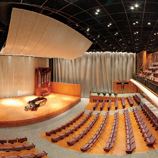
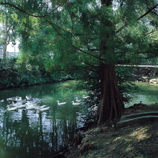
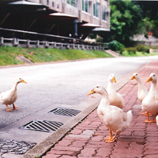
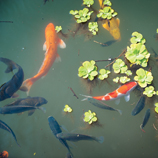
CUHK Research | CUHK: Focus at 50 | The Call of CUHK Colleges
CUHK Home | ISO Home | Contact Us | Disclaimer | Privacy Policy
Copyright © 2024. All Rights Reserved. The Chinese University of Hong Kong.